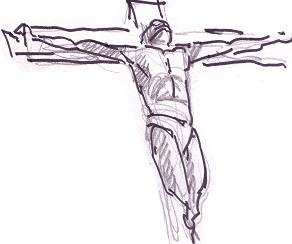
“What profit is there for one to gain the whole world yet lose or forfeit himself?” (Mark 9:25).
Dt 30:15-20; Lk 9:22-25
Jesus’ teaching on finding oneself by losing oneself is very Eastern and paradoxical. Its wisdom was affirmed in Western psychology in thinkers like Karl Jung and Erik Erickson, who saw the path to fulfillment as joining apparent opposites.
Erickson divided life into stages a person completes by balancing opposing needs. An infant matures by resolving its attachment to the mother with its need for autonomy. Adolescents claim identity by distinguishing themselves from the group. Self-possession precedes our ability to share ourselves with another in intimacy.
Jesus tells his disciples that they must first carry their crosses. The burden of our identity is specific to each of us. No one else can carry your cross, and you cannot shoulder another’s. By taking responsibility for ourselves, we are ready to give ourselves to the community, to the needs of others, for the sake of Christ.
If we never find ourselves we will lose ourselves, either by never maturing or because we forfeit our freedom and identity in the pursuit of some lesser prize unworthy of our full dignity.
This paradox provides a lifetime of reflection, with new insights shedding light on our choices in new circumstances and challenges. Discipleship frames and guides our progress. Lent is the perfect time to give this our attention. As long as we are following and imitating Jesus, we will always lose ourselves and find ourselves in just the right way.





